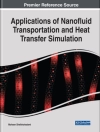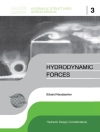This book presents the fundamental aspects, recent developments in fabrication and characterization techniques, structure, properties, and emerging applications of MXenes. It shows the advancement in scale-up, challenges, and their futuristic perspectives. An overview of all the latest developments in energy storage and conversion applications, catalysis, environmental remediation, and radiation shielding, etc is reported.
Tabella dei contenuti
1. Introduction.- 2. Synthesis and Processing Strategies.- 3. Properties of MXene.- 4. Composites of MXene.
Circa l’autore
Dr. Mohammad Khalid is Research Professor and Head of Graphene and Advanced 2D Materials Research Group at Sunway University, Malaysia. His research interests lie in the area of advanced nanomaterial synthesis, heat transfer fluids, energy harvesting, and storage. He has over 15 years of research and teaching experience. He is also Fellow of the Higher Education Academy (FHEA), UK.
Dr. Arulraj Arunachalam received his Ph.D. in Nanotechnology (Energy) from Anna University, Tamil Nadu, India. He is an ANID-FONDECYT Postdoctoral Fellow at the Department of Materials Engineering, University of Concepcion, Concepcion, Chile. His research interests are focused on designing and studying various two-dimensional functional materials, including chalcogenides, MXenes, and graphene that perform energy conversion reactions (solar energy conversion, H2 production) and energy storage (supercapacitors).
Dr. Numan Arshid obtained his M.Sc. degree in Electrical Engineering from COMSATS University, Pakistan, and Ph.D. in Experimental Physics from the Center for Ionics, Department of Physics, University of Malaya, Kuala Lumpur, Malaysia. He is a Senior Research Fellow at Graphene and Advanced 2D Materials Research group (GAMRG), School of Engineering and Technology, Sunway University Malaysia. Numan has over six years of research and teaching experience and his research interest is mainly focused on the development of 2D heterostructure nanomaterials for energy storage and electrochemical sensors application.
A. Nirmala Grace is Professor and Director at the Center for Nanotechnology Research, Vellore Institute of Technology (VIT), Vellore, India. She received her Ph.D degree from the University of Madras, India, and worked as Postdoctoral/Senior Researcher Fellow at the Korea Institute of Energy Research, South Korea, on Renewable Energy. She is Fellow of the Royal Society of Chemistry (FRSC), Fellow of the Academy of Sciences, Chennai (FASCh), and Member of International Solar Energy Society (ISES). Her current research interests include energy materials, design and fabrication of electrodes for dye sensitized, perovskite solar cells; electrodes for supercapacitors—morphological studies of supercapacitor electrodes and study of electrochemical redox reactions at the interface of electrodes and electrolytes; engineering of inter-layer spaces in 2D materials to improve the ion accessibility; tuning the structure and porosity of electrode materials; transparent photovoltaics for device and surface integration; flexible energy devices for conversion and storage—flexible and printable supercapacitors for wearable devices such as sensors and energy conversion.












